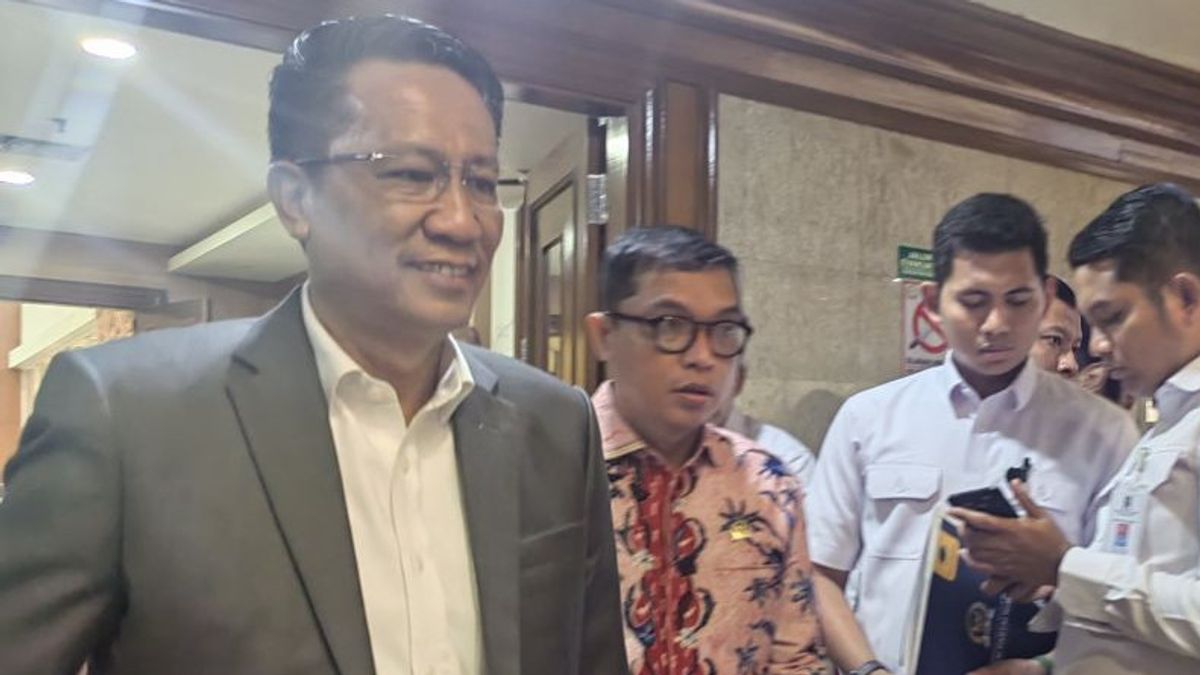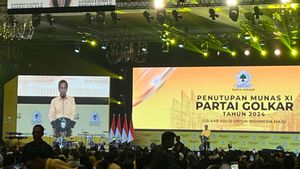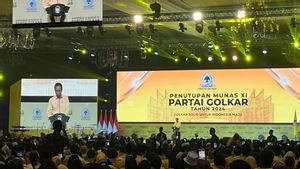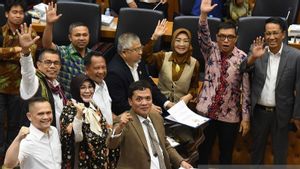JAKARTA - The DPR and the government have dismissed accusations that they have annulled the decision of the Constitutional Court regarding the threshold for nominating political parties to carry candidates in the regional elections through the revision of the Regional Head Election Law which was approved in level I discussions.
Deputy Chairman of the Legislation Body (Baleg) of the House of Representatives, Achmad Baidowi, claims that the DPR and the government have adopted part of the Constitutional Court's decision by more detail in the contents of the Pilkada Bill.
"The DPR and the government did not change the decision, did not cancel the Constitutional Court's decision, but adopted the Constitutional Court's decision and then detailed it. Detailed what? Related to the non-parliamentary parties, it was arranged separately, related to political parties where seats in parliament were arranged separately," said Awiek, his nickname, as reported by ANTARA, Wednesday, August 21.
He said the DPR and the government have the authority to formulate laws, while the Constitutional Court does not.
"Because the authority of the DPR creates new norms. In every Constitutional Court decision, the DPR may create new norms. Every time it forms a law, there are also many considerations for the Constitutional Court's decision," he said.
He then said, "We don't cancel, don't revise it, it's still valid from points A, B, C, D (referring to the Constitutional Court's decision), right, but it's more congested, it's more explicit to distinguish parties that have seats in the DPRD and parties that don't have seats in the DPRD."
Awiek also dismissed accusations by the DPR and the government to annul the Constitutional Court's decision because hierarchically it is indeed the latest law that will be a reference for the General Election Commission (KPU) as the implementer of the law in the election contestation.
"When there is a new law, yes, the old law does not apply, what is used is a law that has just been passed, if this has been promulgated, yes, we will definitely use this law. We do not annull it. The legal principle applies progressively and normally. So, nothing is hidden. So, when tomorrow is completed, ratified, then the President invites it, then the law is valid," he said.
In line with the DPR, Minister of Law and Human Rights Supratman Andi Agtas as the government's representative also dismissed the government and the DPR annulled the Constitutional Court's decision through the revision of the Pilkada Law because it only carried out the authority of the legislators.
"Actually, it's not about annulling, we know that the DPR is an institution that forms the law, if it turns out that today the parliament approved a draft which of course becomes a reference, it also concerns the results of the Constitutional Court's decision, yes the government agrees," he said.
Previously, the Legislation Body of the DPR and the government agreed to continue discussing the Draft Law on the Fourth Amendment to Law Number 1 of 2015 or the Pilkada Bill at the nearest DPR plenary meeting to be ratified into law.
One of the crucial contents of the Pilkada Bill agreed by the DPR and the Government is the amendment to Article 40 of the Pilkada Law which accommodates part of the decision of the Constitutional Court which changes the provisions of the election nomination threshold, by imposing it only for non-parlement parties or not having seats in the DPRD.
Meanwhile, parties that have seats in the DPRD will still follow the old rules, namely at least 20 percent of the DPRD seats or 25 percent of the valid votes acquired.
SEE ALSO:
The following are the provisions of Article 40 that have been changed:
(1) Political parties or coalitions of political parties that have DPRD seats can register candidates if they meet the requirements for obtaining at least 20 percent of the total number of DPRD seats or 25 percent of the accumulated valid votes in the general election of DPRD members in the area concerned.
(2) Political parties or coalitions of political parties that do not have seats in the provincial DPRD can register candidates for governor and deputy governor candidates with the following conditions:
a. Provinces with a population of up to 2,000,000 people, political parties or coalitions of political parties participating in the election must get a valid vote of at least 10 percent in the province.
Previously, the Constitutional Court decided on a crucial decision related to the stages of nomination of regional heads, namely Decision Number 60/PUU/XXII/2024 which changed the threshold for the nomination of political parties or coalitions of political parties to carry the pairs of candidates for regional heads and candidates for deputy regional heads.
The English, Chinese, Japanese, Arabic, and French versions are automatically generated by the AI. So there may still be inaccuracies in translating, please always see Indonesian as our main language. (system supported by DigitalSiber.id)












